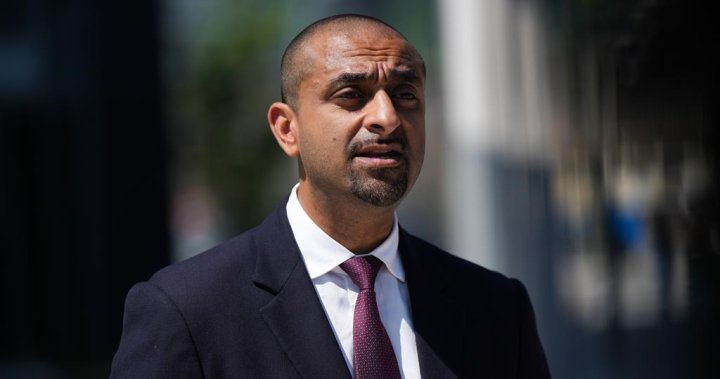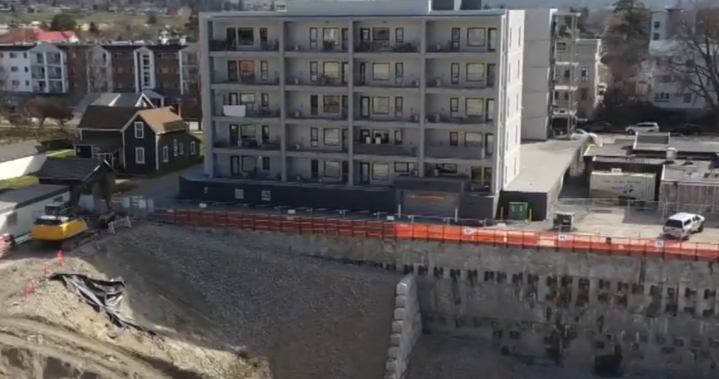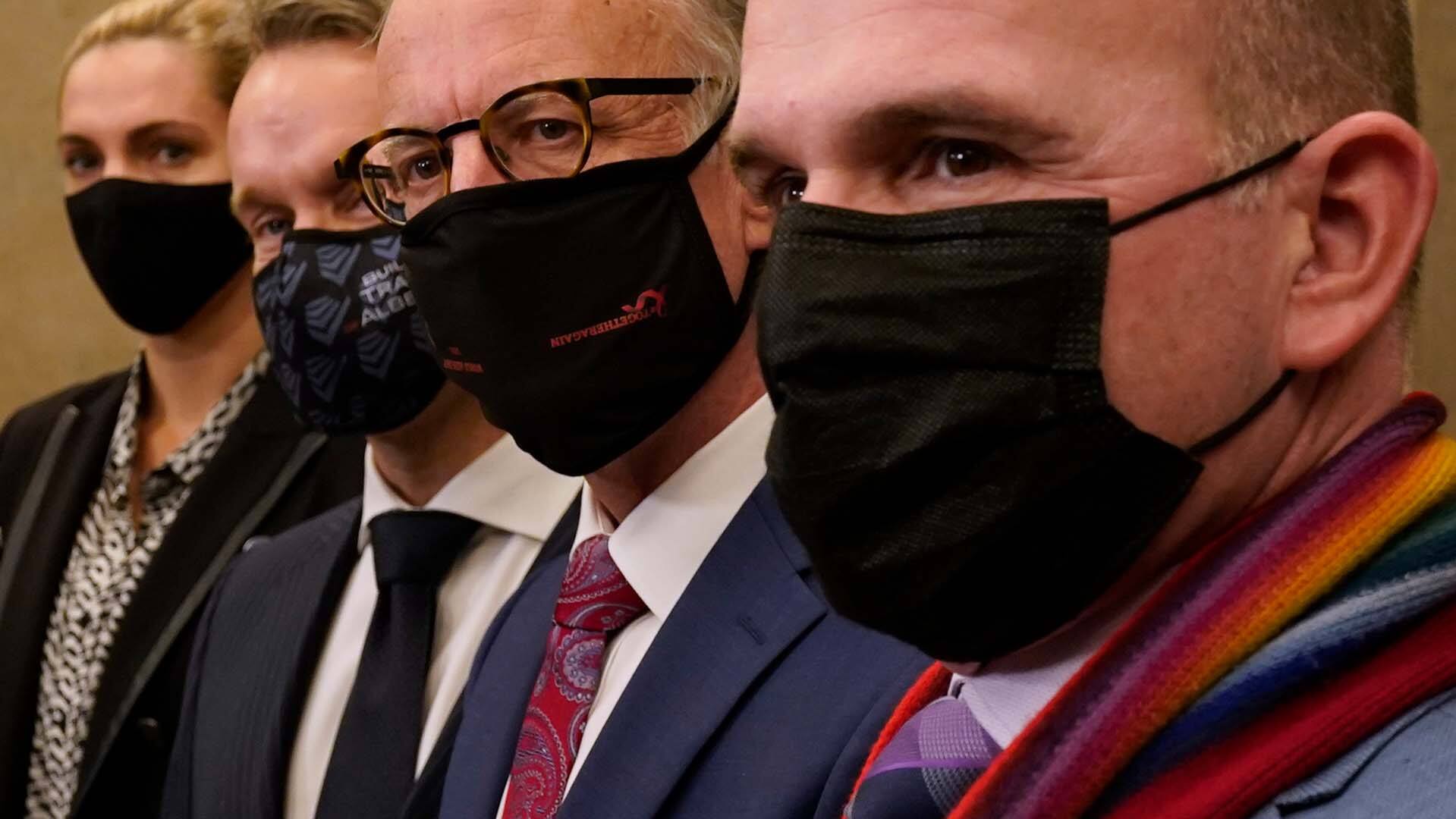Though it might not be quite worthy of a ticker-tape parade, this brief four-week fall sitting of the House of Commons could end up looking somewhat productive.
The next question is whether this foreshadows an equally productive Parliament in the new year.
At least some of the efficiency might be traced back to a simple alignment of political interests. Consider C-4, the Liberal government’s bill to ban conversion therapy.
Last week, MPs unanimously agreed to pass the bill immediately at all stages, just two days after it was tabled in the House. This week, senators agreed to do the same and the bill was quickly given royal assent.
It no doubt helped that similar legislation passed the House last spring, before dying on the order paper when Parliament was dissolved for this fall’s election. But fast-tracking the legislation also worked neatly for both the government and the Official Opposition.
WATCH: MPs react after House of Commons passes conversion therapy ban
MPs shared a moment of solidarity after unanimously passing a bill that would ban conversion therapy, a practice meant to change an individual’s sexual orientation. 2:02
In the House and Senate, it was Conservatives who moved the motions to pass the bill at all stages without recorded votes. That got a difficult issue for the Conservative Party off the table. It also spared them from the sort of roll-call voting that would have shown exactly how many of their members still opposed the bill.
The Liberals were at least smart enough to take “yes” for an answer. The government could have tried to make passing the bill as painful as possible for the Conservatives — but after having delayed the conversion therapy ban with an election call, the Liberals would have been pilloried for dragging this out now.
Three weeks ago, Government House leader Mark Holland outlined his priorities for these four weeks: the conversion therapy ban and legislation to extend COVID-19 supports, protect health care workers from protests and mandate ten days of paid sick leave for workers in federally regulated sectors.
A confluence of interests
The government put the last two of those priorities together in one bill (C-3) and then got the NDP’s support to invoke “time allocation” — a formal mechanism for bringing debate to an end — in order to call a vote after four days of debate at second reading.
This was a case of the Liberals and NDP wanting the same things; New Democrats grumbled that the Liberals were late to embrace an NDP demand for paid sick leave. But C-3 also ended up getting the support of the Conservatives and Bloc Québécois to pass unanimously.
The extension of COVID-19 supports is proving trickier, particularly because of opposition concerns about seniors whose Guaranteed Income Supplement payments are being clawed back because they received other pandemic benefits. Finance Minister Chrystia Freeland says she is seized with the issue but it’s not clear how quickly a remedy might come.
There could be other trouble ahead. The government and the Official Opposition are still at odds over access to documents related to the Public Health Agency of Canada’s firing of two scientists last year. A new parliamentary study of Canada’s evacuation from Afghanistan could lead to more disputes over classified government documents.
A lack of leverage
But the House of Commons might also be demonstrating that it is capable of moving quickly.
Tom Axworthy, a former adviser to Pierre Trudeau, said in an essay last month that the last election didn’t leave any party in a position to exploit the leverage that usually comes with a minority Parliament: the threat of another election.
That might restrain partisan passions on all sides — at least for a while.
In an interview on Friday, Holland said “a spirit of reasonableness and cooperation … has pervaded” the conversations between parties so far. His own approach, Holland said, will be dictated by “logic” and “reason.”

“I’m willing to work with anybody who is going to be reasonable and logical and offer fair compromise,” he said.
“Our objective, our sole focus, is getting the business of the nation done. We’re in a time that demands all of our attention and for us to act expeditiously, and so I don’t think folks have a lot of time for partisan politics. That, I think, was the message of the last election.”
Does the use of time allocation for C-3 suggest the government might be looking to take a more forceful approach to the House?
“I think what we’re doing is taking a reasonable approach to getting things through the House,” Holland said. “It is totally fair that [MPs would want] items debated in the House, that they would want to have time at committee.
“But I think there’s an expectation that everybody has that that be done expeditiously. Reading the same speech 19 or 20 some times, it doesn’t add anything to the debate. And I dare say it isn’t really reflective of doing the business of the nation. There’s a certain point where it’s time to move on.”
Reasonableness and logic are in the eye of the beholder. So is the matter of how much time is enough time for a debate.
Axworthy also suggested that minority Parliaments have been fruitful when “policy was uppermost.”
That might seem self-evident, but it might also surprise you to learn that Parliament is not always consumed by the most pressing public policy questions of the moment. Periodically, it gets sidetracked by intrigue and scandal. Procedural fights in one corner of a minority Parliament can spill over into other areas and turn into brawls.
But there is no shortage of big issues to deal with right now and there should be no shortage of policy for this Parliament to consider.
That could provide a focus to keep things moving — at least until someone thinks it’s safe to threaten another election.






More Stories
First ten armoured vehicles promised to Ukraine to be delivered by summer, Blair says | CBC News
CSIS had officer investigated after she reported a superior raped her | CBC News
Court ruling affirms law curbing parliamentary immunity of spy watchdog members | CBC News